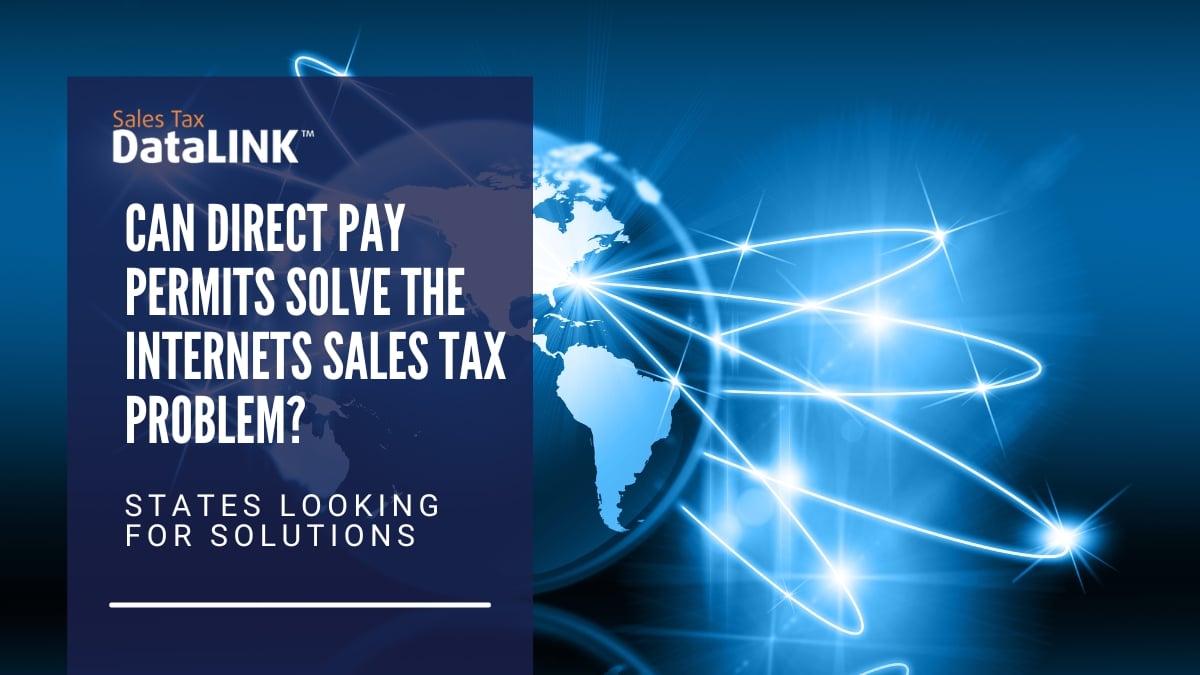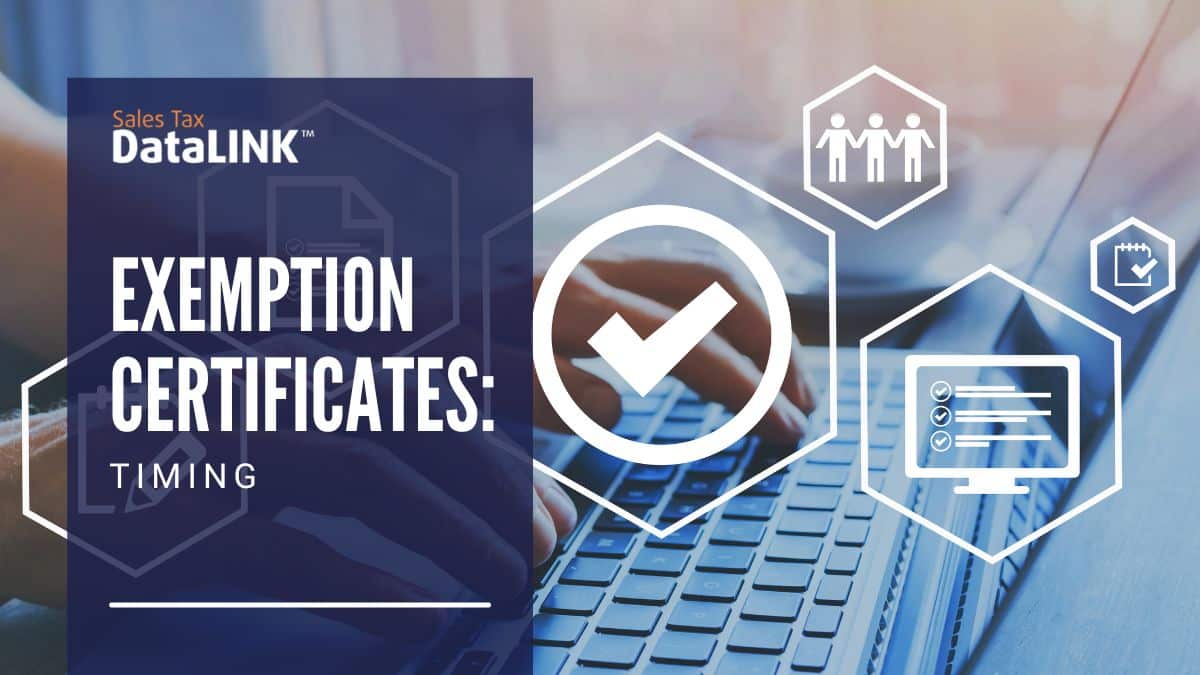States have been hemorrhaging sales tax revenue for years and have been looking for solutions. It’s possible, however, they’ve had access to a solution all along that would completely change the way we pay sales and use tax while helping to correct the e-commerce sales tax problem. As it stands now, some companies use what’s called a Direct Pay Permit, or a DPP, to buy goods without having to pay sales tax on the purchase and self-impose use tax instead. DPPs might provide an easier method for tax collection, taxability, and situsing, although it would require changes to how the tax software systems work. A company can obtain a DPP for a number of reasons but it all revolves around the ideas behind taxability.
Taxability is, of course, determined by the nature of the goods being sold and where they are ultimately used. When a company can’t say the nature of how the goods will be used at the time of purchase, it is impossible to determine taxability at the sale. The same goes when a company doesn’t know where the goods will be used, as the sales tax jurisdiction can’t be determined. These are the two main instances when a company can use a DPP. When a company uses a DPP, they remit sales tax accordingly after the final use or location of use is determined. It is more accurate for a single company to determine its own taxability than to have vendors trying to make decisions for transactions when they don’t know all the information.
To solve the e-commerce sales tax crisis, states could change over to a full DPP system where the use tax is paid by the company after the sale directly to the tax jurisdiction. There are a few caveats to this idea, however. First, the current use tax system of some companies would not work because their software for use tax is not as automated as sales tax software. Another problem is that companies might have a hard time adjusting to this format of paying for use tax. The accounting is different as steps are needed to add use tax to the total purchase price of capital assets to get to full depreciable value. The problem is much trickier to solve since the DPP concept is new to many taxpayers. However, the benefits of a DPP-based system that’s closely monitored might outweigh the costs and hardships endured when the system was first implemented. States can win against e-commerce by collecting taxes correctly and reducing audits and audit cycles. States would see a higher percentage of tax collection and accuracy and lose far less when auditing only targets high-revenue companies or problematic returns.




